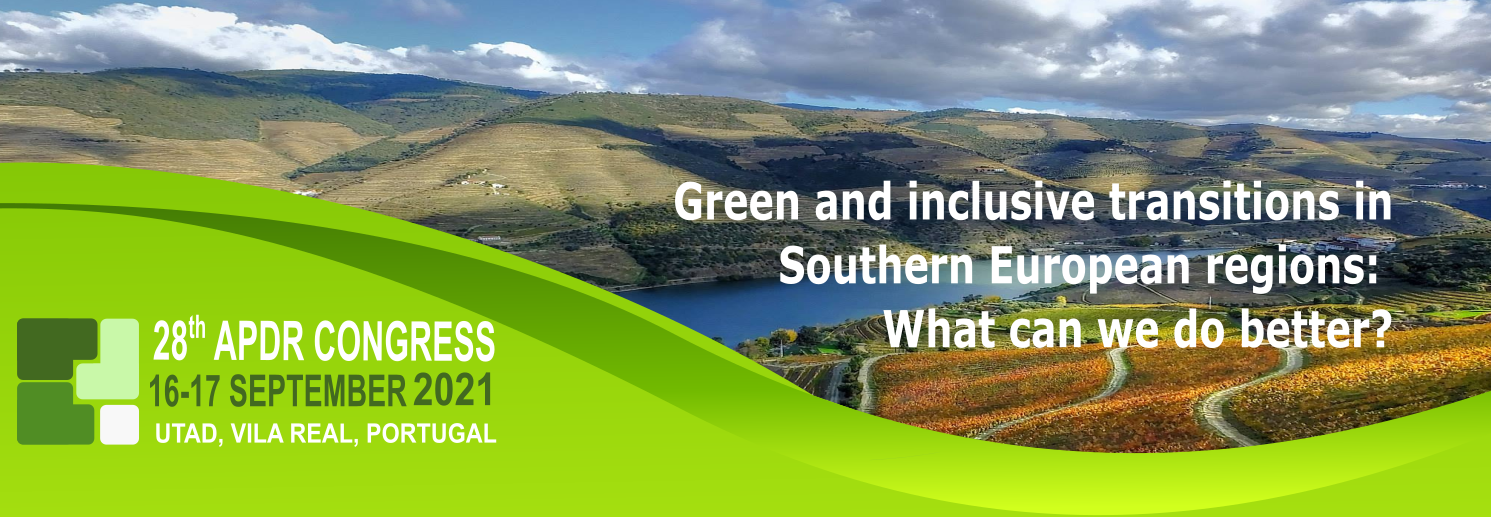28th APDR Congress, Green and inclusive transitions in Southern European regions: What can we do better?

Venue: UTAD, Vila Real, Portugal
The 28th APDR Congress will be held at the University of Trás-os-Montes e Alto Douro (UTAD), placed in Vila Real, in the Northeast of Portugal. The participation can be in place or on webinar. Vila Real is an example of the small and medium-sized towns (SMESTO) that have often acted in the past decades as buffers against the declining socio-demographical dynamics faced by rural and peripheral regions of Southern Europe. Currently, this particular SMESTO, like many others across Europe, is challenged by the worldwide phenomenon of shrinking cities and regions, happening simultaneously with others' thriving, including diverse SMESTO in regions of Southern Europe. Divergent and unequal growth and territorial competitiveness trends have been appraised by numerous studies in regional science. Also, those trends paved the way for breakthrough research in regional science concerning the theoretical foundations and empirical research on place-based and smart regional development, including smart rural development. Due to regional science, growing attention is given to “people and places”, hence going beyond the region's framework, to better understand lasting uneven regional development patterns.
The newest Europe growth strategy, the European Green Deal, sets directions and priorities towards more green, carbon-neutral, economic development within the current decade and beyond. It brings-in the transition concept aiming to emphasize its major goal of taking Europe towards a superior stage respecting the ecological sustainability of the economic development. How this can be done, it is a transversal research question to all sciences and an opportunity for inter-, trans- and cross-disciplinary research. For regional studies, this is an opportunity to reflect on how recent research advances in regional science and related fields, including the lessons learned from the analysis of the different territorially-based policies and the smart regional specialisation approaches, can help us to support the design of territorially-focused green transitions. Meaning, place-based transitions lined-up with global goals but focused on responding to the people and places’ constraints, wishes, and expectations.
Hence, beyond the various themes related to regional science, this congress will focus on how recent theoretical advances on place-based development, alongside empirical appraisal of policies addressing smart, sustainable, and inclusive regional development, can help regional scientists to inform the design of territorially-differentiated green transitions. What can scientists, politicians, and citizens do better in designing and implementing development agendas and policies, learning with available research and past policies?
All Dates
- From 16/09/2021 to 17/09/2021
Powered by iCagenda
About Us
The Regional Science Association International (RSAI), founded in 1954, is an international community of scholars interested in the regional impacts of national or global processes of economic and social change.
